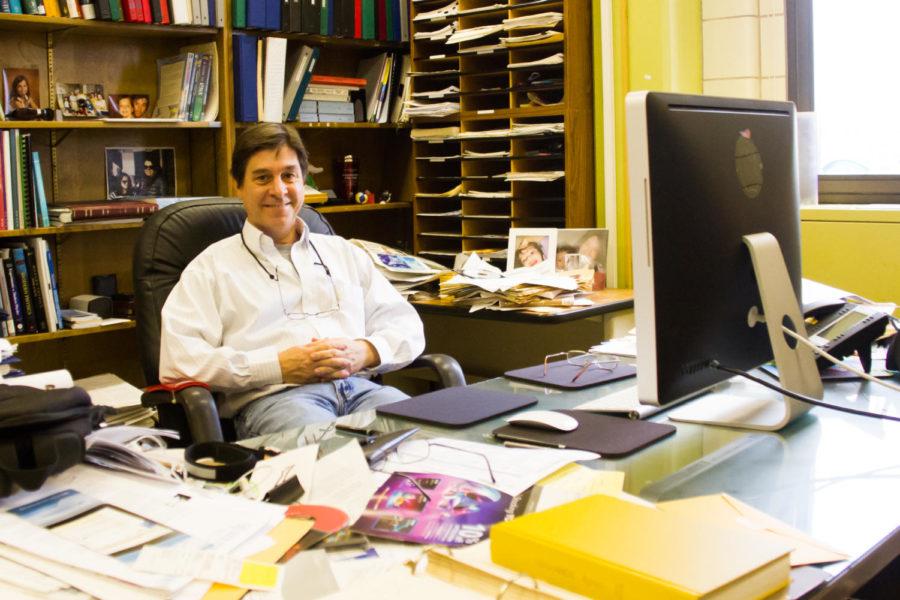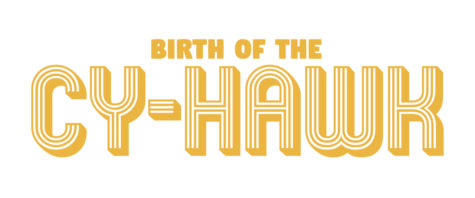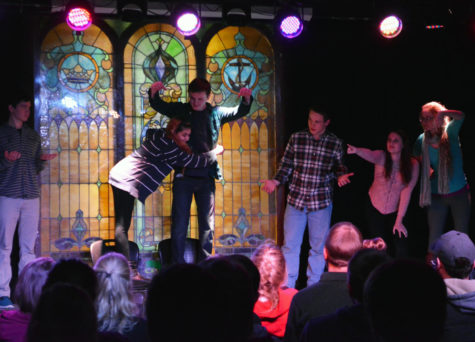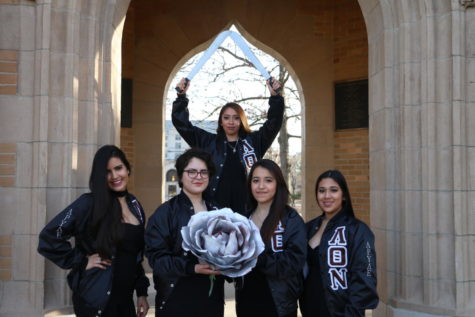ISU faculty contribute to Large Hadron Collider, ATLAS
Professor Jim Cochran sits in his office in the Zaffarano Physics Addition. Cochran is part of a team that works with the Large Hadron Collider in Switzerland, studying particle physics.
November 16, 2015
Lecturing, grading papers and planning keeps ISU professors busy with the wide range of tasks their job demands, but one professor’s job is quite different.
Jim Cochran, professor of physics and astronomy, not only has the responsibilities of a professor but also helps oversee the Large Hadron Collider and the U.S. ATLAS experiment, two of the largest science experiments of all time in terms of scale.
The Large Hadron Collider is the world’s largest and most powerful particle accelerator, and the largest single machine in the world. The ATLAS experiment is one of the particle detectors in the collider that measures the particle collisions created by the experiment.
Since 2013, Cochran has been the deputy manager of the ATLAS Operations Program, helping oversee the United States’ contribution to ATLAS at the Large Hadron Collider in Switzerland.
As deputy manager, Cochran helps manage contributions from the National Science Foundation and the U.S. Department of Energy, which respectively give $9 million and $25.6 million dollars to ATLAS annually.
“It’s a lot of bureaucracy, working with the different agencies,” Cochran said.
Cochran’s work involves making sure the money flows, participating in general management and acting as a liaison between the European Organization for Nuclear Research management and the funding agencies.
“It’s a lot of traveling, more than I actually care for,” said Cochran, who travels to Europe frequently for his job.
In 2013, ATLAS and the Large Hadron Collider helped shed light on the mysterious Higgs boson particle, which gives mass to other particles. Nicknamed the “God particle,” the Higgs boson was one of the most sought after and expensive physics discoveries ever.
Cochran’s interest in physics has been lifelong dedication stemming from his childhood. While his father wanted him to major in business, Cochran ultimately decided to pursue science by majoring in physics.
At Iowa State, Cochran has a teaching buyout that allows him to focus on his work, provided he teaches one class around every two years — an advanced lab that he considers to be as close to real research as possible.
“Its great fun, and we have lots of really cool experiments,” Cochran said.
Cochran encourages students to bring their own ideas for experiments to the class to work on.
While his job keeps him busy, Cochran doesn’t let the stress get to him.
“I think it could be stressful; I try not to let it be,” Cochran said.
Cochran said that many safeguards are in place for him that help him keep his mind at peace. However, he frowns upon critics of the Large Hadron Collider who think the particle collider could create a black hole by mistake.
“They don’t give it much thought, it’s just unfortunate,” Cochran said.
Cochran said a benefit of huge experiments such as the collider is that the discoveries they create can lead to all kinds of new technological innovations that can make a big impact on a person’s daily life.
Chunhui Chen, associate professor of physics and astronomy, is also part of the ATLAS team, and he agrees with Cochran about the benefits of experiments such as ATLAS.
Chen said that the reason why we have modern conveniences such as cell phones comes from high-level physics experiments relating to things like electromagnetic waves, spatial relativity and other abstract mechanics.
“Physics is really the foundation, right?” Chen said.
Chen said he finds physics interesting because it provides a foundation for the other sciences.
“It’s more like when you build a fancy house,” Chen said. “If you don’t have the bricks, you have nothing, right?”
Chen has many responsibilities with ATLAS, including maintaining the experiment, calibrating detectors and working with students and postdoctoral students to analyze data.
Chen came to Iowa State in 2009 as an assistant professor and was looking for an exciting project in the field. For Chen, looking for the Higgs boson particle was the most interesting and highest priority project he could take.
Chen enjoys the travel when he gets the opportunity.
“The experiment is actually based in Europe in Geneva, so I have a chance to travel to Europe, and that’s something very exciting,” Chen said. “You do enjoy the different country, the different atmosphere, and I think that’s some kind of fun.”
Chen typically travels overseas for ATLAS during the summer because of his responsibilities as a full-time teacher. Chen said one of the biggest challenges of his work is communicating with his students and postdoctoral students overseas, as they aren’t able to communicate face to face.
“I didn’t know we had a professor here who worked on stuff like that,” said Brian Sandahl, sophomore in biology. “I’ve heard of the Large Hadron Collider, but I don’t really understand it. I know it’s a big deal though.”
Chen said that having ISU faculty working at the ATLAS experiment is great publicity for the university.
“Iowa State is a large, research-oriented university,” Chen said. “Being in a big project like this is good because it gets our name out there.”















